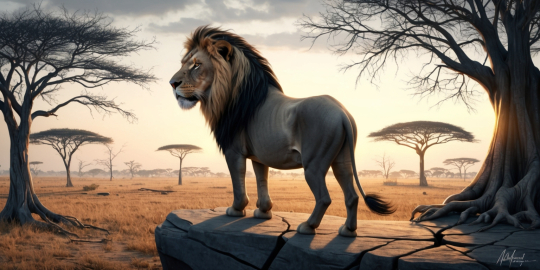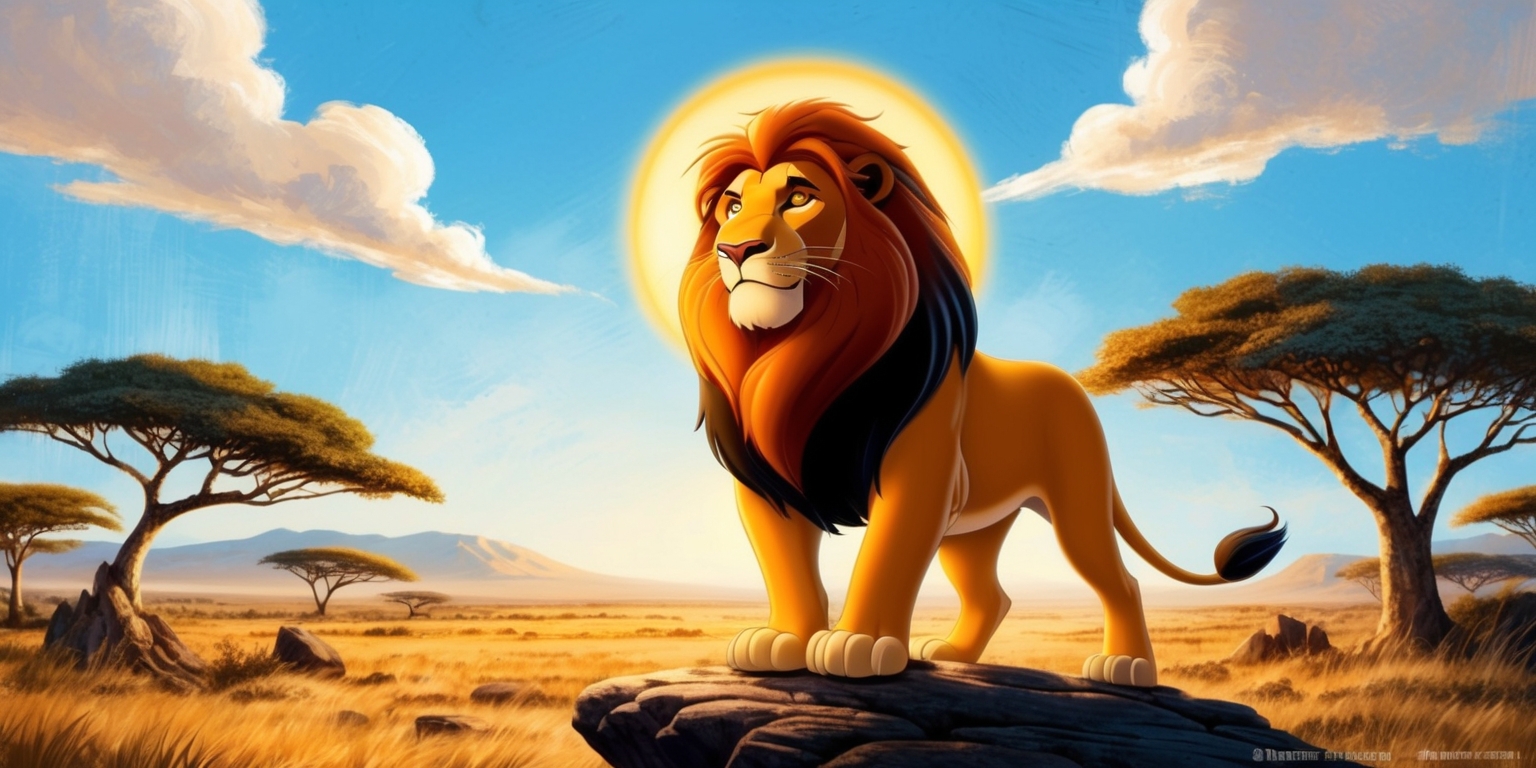
Disney has long been known for its enchanting storytelling and ability to create worlds brimming with imagination and emotional depth. However, recent ventures have raised questions about the studio's direction, particularly with the debut of Mufasa: The Lion King. This film, intended as both a prequel and a follow-up to the 2019 reimagining of The Lion King, ultimately falters in its ambition. With a narrative that lacks substance and characters devoid of charm, Mufasa fails to capture the magic of its predecessors, leaving audiences wondering about the merits of yet another foray into this animated classic.
Mufasa: A Disconnect from Emotion
Following the opening tribute to the legendary James Earl Jones, the actor behind the original voice of Mufasa, film, Mufasa: The Lion King immediately plunges into its narrative. Set in the wake of the 2019 remake, the story engages viewers through the eyes of Kiara, Simba’s daughter, as she learns about her grandfather's legacy. Unfortunately, the storytelling quickly reveals itself to be hampered by an uninspired script and unimaginative direction.
Back to the Beginning
The film’s framing device sees Kiara being entertained by the duo of Kimbaa and Timon, along with the wise Rafiki. The narrative transports us to Mufasa's early days, chronicling his treacherous journey from being separated from his family to assuming the role of king. The repetition of familiar themes renders this endeavor a hollow experience with little room for exploration or fresh insights into the character of Mufasa.
The Influences of Brotherhood
At the core of this narrative resides the relationship between Mufasa and his brother Taka. As young lions, both characters navigate life and rivalry, with Taka’s cowardice standing in stark contrast to Mufasa’s bravery. Unfortunately, despite being given ample screen time, their development feels rushed and disjointed, preventing audiences from forming genuine connections with these pivotal characters.
A Dull Evolution

Mufasa's noble characteristics are continuously established, while Taka grapples with feelings of inadequacy and jealousy. This foundation could have paved the way for an engaging origin story of Scar, but the execution falters. As the film progresses, Taka's transformation into the villain known as Scar is abrupt and poorly motivated, leaving viewers perplexed rather than intrigued.
Disillusionment with Character Arcs
The significant flaw in Mufasa: The Lion King lies within its failure to deliver character development that resonates. Rather than presenting a nuanced depiction of Taka's descent into villainy, the film opts for a contrived shift that strips his character of depth. What could have been a compelling exploration instead results in a predictable and superficial narrative trajectory.
The Employ of Familiar Faces
With a cast that boasts A-list talent, the film's reliance on recognizable voices comes perceived as both an advantage and a drawback. While star power is present, the actors’ performances often feel disconnected from their animated counterparts. This results in dialogue that, instead of enhancing the characters’ persona, simply mimics their real-life personae, creating an oddly jarring experience.
Soundtrack: Missed Opportunities
In efforts to invigorate the film, Lin-Manuel Miranda’s involvement in crafting new songs should have enriched the viewing experience. Tragically, many of the songs presented fall flat, lacking the creativity and punch audiences have come to expect. Instead of elevating the narrative, these forgettable tunes merely blend into the background.
Visual Choices: Aesthetic Flaws
The decision to adopt a hyper-realistic animation style reflects Disney's current obsession with lifelike portrayals. However, this approach backfires; the characters often blend into a backdrop devoid of warmth or personality. What could have been visually captivating becomes a lackluster display, drawing comparisons to unengaging video game graphics rather than memorable animation.
Editing and Direction: A Disjointed Vision
Directed by Barry Jenkins, known for his powerful storytelling, Mufasa: The Lion King falls short of the high standard audiences expect. The editing feels choppy, as though the film has endured extensive studio interference. Moreover, the cinematography does not provide the audience with a cohesive experience, instead offering a collection of disjointed shots that lack the captivating allure of both live-action and animation.
Rehashing Old Themes
Despite hailing from a franchise celebrated for its impactful messages and emotional depth, this film largely rehashes existing themes without introducing anything significant. The adventure, brotherhood, and rivalry present within the narrative feel stale and predictable, leaving audiences yearning for the originality that characterized the earlier installments of the series.
The Reflection of a Franchise at a Crossroads
Mufasa: The Lion King represents a larger inconsistency in Disney’s storytelling direction. It seems that the drive to capitalize on nostalgia leads to the creation of formulaic and uninspired content. As the studio tiptoes on the line between reinvention and repetition, the charm that once defined its films grows increasingly elusive.
The Disappointments of an Anticipated Narrative
Even with the potential for a meaningful exploration of Mufasa's origins and the development of Scar, the execution renders these hopes unfulfilled. The narrative twist fails not only to engage but leads to frustration, leaving audiences wondering about the purpose behind this prequel. The lack of substantial content transforms what could have been a rich exploration into barren storytelling.
Final Thoughts: Will It Capture Hearts?
In a landscape filled with animated retellings of beloved classics, Mufasa: The Lion King stands as a stark reminder of the dangers that accompany with revisiting established stories. With its lack of emotional depth, problematic character development, and an overall uninspired vision, the film leaves much to be desired. Ultimately, it highlights the pressing need for studios to find harmony between fond memories and creative advancement if they wish to capture the hearts of their audience once more.
A Call for Originality
Mufasa: The Lion King acts as a powerful reminder of what happens when studios prioritize profit over storytelling. The franchise deserves better than a lifeless rehash of past glories. For true fans of Disney, the film may evoke disappointment as hopes for renewal give way to disillusionment. As it stands, Mufasa may be a final nudge toward demanding more original content, aiming for the creative vibrancy that has long been the hallmark of Disney storytelling.
The movie is scheduled for launch in theaters on December 20, but for many, the excitement of this date may outweigh the cinematic experience it promises.